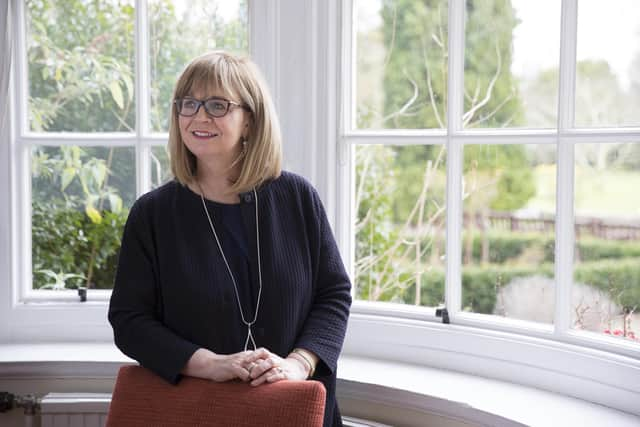Dame Elish Angiolini calls for US to hand over 'torture' report to Scottish prosecutors
The former Lord Advocate said prosecutors should be entrusted with a confidential US Senate report into alleged CIA torture, amid long-standing concerns over the use of Scottish airports by rendition flights.
In an interview with The Scotsman, Dame Elish also cautioned against “throwing the baby out with the bathwater” amid calls to split up the dual role of the historic post of Lord Advocate that she held for five years.
Advertisement
Hide AdAdvertisement
Hide AdAnas Sarwar, Scottish Labour’s leader, has said the Lord Advocate should no longer serve as both head of the Crown Office and Procurator Fiscal Service (COPFS), and the Scottish Government’s principal legal advisor.
His party has pledged to split the roles in its Holyrood manifesto, with the issue subject to intense debate following the Scottish Parliament committee’s investigation into the government’s mishandling of complaints against former first minister Alex Salmond.
But Dame Elish said any change must come via “proper constitutional examination,” instead of “fag packet” proposals.
The 60-year-old will this week be announced as the new chair of the board of trustees of Reprieve – the charity that campaigns against extreme human rights abuses in the name of national security.
It has long called for full disclosure of Britain’s involvement in torture and rendition during the so-called ‘war on terror’, and Dame Elish intends to aid that effort.


As Lord Advocate, she received information alleging the use of Scottish airports by CIA flights.
Some 14 years on, the issue remains under investigation by Police Scotland, but efforts to secure the full Senate report into the rendition programme have been met with silence, with the UK Government refusing to hold a public inquiry into allegations of the complicity of security services in the torture of terror suspects.
That situation, Dame Elish warned, is untenable.
“The government promised it would hold an inquiry, and it hasn’t, but this isn’t something that’s going to go away,” she said.
Advertisement
Hide AdAdvertisement
Hide Ad“It’s in the public interest and the matter is still being investigated in Scotland despite the paucity of evidence.
“Given the length of time and the public interest, there’s a need for an independent, judge-led inquiry. It’s very sad that that has not happened.”
She pointed to the plight of Saifullah Paracha, a 73-year-old who has been detained at Guantanamo Bay for 18 years without ever being charged. Human rights lawyers and academics claim a CIA jet he was flown on refuelled in Glasgow.
Calling for the full 6,700 page Senate report to be released, Dame Elish explained: “There is a vacuum of justice. We’re not naive. We understand precisely how some things have to be kept confidential to preserve life and limb, but we can be trusted. Public prosecutors act in the public interest and should be trusted to do that.”
Dame Elish said more needs to be done to help Jagtar Singh Johal, a 33-year-old from Dumbarton, who has been detained in India under anti-terror laws for four years, and who claims he was tortured to sign a blank confession.
“As I understand it, the UK Government hasn’t called for his release or repatriation, despite a petition from more than 70 MPs,” she said.
“It may be that they are doing something behind the scenes, but he’s still in India, and the circumstances he has endured are lamentable.”
Dame Elish said the role at Reprieve, which sees her succeed Lord Wallace of Tankerness, represented a “logical continuation” of her storied legal career.
Advertisement
Hide AdAdvertisement
Hide AdAs a teenager, the experience of giving evidence in a burglary trial sparked her interest in justice. It led to her joining the COPFS. She went on to become the first woman to serve as Solicitor General and, subsequently, Lord Advocate.
A decade has passed since she stepped down from that office, and she is now based in Oxford as the principal of St Hugh's College.
Yet she has kept a close eye on home, watching Scotland “grow in confidence,” specked with bouts of homesickness intensified by the pandemic. “I was looking at something last night and I put on Dougie MacLean’s Caledonia,” she confided via Zoom. “I was welling up.”
The changes that have come over Scotland in her absence are significant, though more could be coming, especially around the duties of the Lord Advocate. Dame Elish said she had no issue with the role being reviewed, but stressed the need for considered analysis.
“You can look at different models, but don’t throw out the baby with the bathwater,” she said.
“Something which has been there for over 500 years might actually be very valuable. At the same time, we have to be open minded. Scotland is growing in confidence in its governance. Nothing should be left unexamined.
“It can be done, and it’s a matter of choice, but I don’t think it should be done on the back of what might be perceived as a crisis. I’ve no quibbles with it being looked at, but it’s such a key role. It’s not something that should be done on the back of a manifesto or a fag packet.
“The Scotland Act provided that the Lord Advocate, in that prosecutorial role, must act independently of any other person. Ultimately, protecting that obligation and right comes down to the Lord Advocate. It’s a lonely place to be. You don’t have great friends, it’s quite monastic.”
Advertisement
Hide AdAdvertisement
Hide AdDame Elish said the justice system should be imaginative in dealing with the vast backlog of cases brought about by the pandemic.
“There are all sorts of things that could be contemplated, some more palatable than others,” she reasoned. “Doing away with juries was considered, but duly jettisoned and quite rightly so.
“I think we will probably need to appoint more judges, even on a temporary basis, and more prosecutors. Courts could also sit at weekends and nights.”
